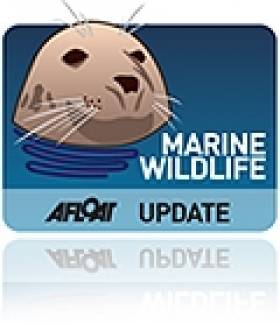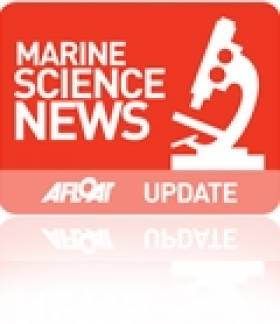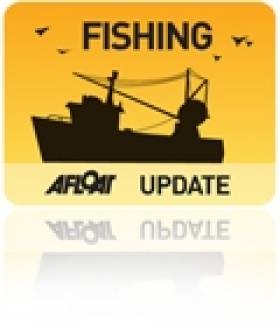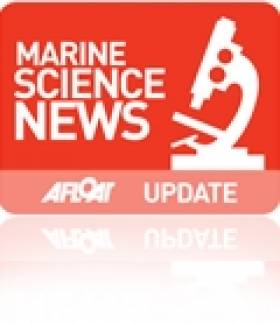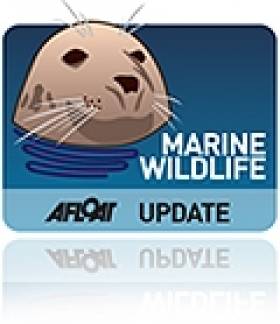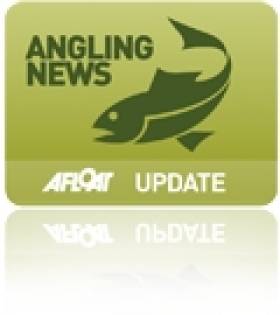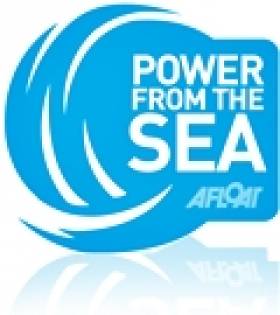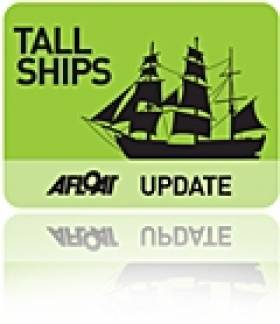Displaying items by tag: research
#Marine - 'Foods of marine origin' are covered by the new call for research proposals under the Government's funding programmes, as announced by Marine Minister Simon Coveney on Tuesday.
In addition, the minister announced his intention to co-fund projects related to the marine sector with the Marine Institute.
Minister Coveney said that "co-funding arrangements between research funders, where appropriate, are logical in the context of the National Research Prioritisation process and, in this instance, it makes perfect sense for my department and the Marine Institute to come together to fund research relating to marine origin foods”.
The new call for research proposals, in general, aims to build and maintain research capability in the Irish public research system, which contributes to underpinning the sustainability and competitiveness of the Irish agri-food, forestry and fisheries sectors and the achievement of growth targets set out in the Food Harvest 2020 plan.
Apart from the marine food sector, areas covered by the call include animal and crop production, food and health, forestry, the wider bio-economy as well as the safety, quality, integrity and sustainability of the supply chain.
Minister Coveney added: “I have no doubt that the research community will take full advantage of this opportunity by submitting excellent proposals and I look forward to following the process over the coming months.”
The deadline for proposal applications is Tuesday 7 May at 1pm. All documentation in relation to the call for proposals is available on the Research Section of the Department of Agriculture, Food and Marine website.
Irish Scientist's Role In Remarkable Giant Squid Discovery
#MarineWildlife - An Irish marine scientist has contributed to new research which seems to indicate that all giant squid in the world's oceans belong to a single species.
The Irish Times reports that Dr Louise Allcock of the Ryan Institute at NUI Galway is part of the team at the University of Copenhagen that has published its findings in the Proceedings of the Royal Society journal.
In studying the genetic code of the mysterious ocean beasts - which until the 1800s were thought to be a myth - the team discovered that what were previously thought to be distinct species for each of the world's major oceans seem to be related as a single population.
The team described the "extremely low genetic variability" they discovered among the squid samples taken from around the world as a "very unusual" development.
Live footage of the rarely seen marine creatures was captured for the first time last summer by a documentary crew in Japanese waters, as previously reported on Afloat.ie.
Researchers Ask For Help In Global Plankton Survey
#MarineScience - Researchers at a UK university are hoping to enlist seafarers to help conduct one of the world's biggest studies of ocean plankton.
BBC News reports on the project by the Marine Institute at Plymouth University, which hopes to encourage fishermen and sailors alike to take part in its survey in Britain's coastal waters - including the Irish Sea - and far beyond.
Anyone participating in the study must drop off the side of their vessel an apparatus called a Secchi disk - a 30cm-wide flat white disk attached to a tape measure or a rope, and weighted from below by a small 200g weight.
When the disk disappears from view, that level is known as the Secchi Depth, which measures the turbidity of the water, which in turn is influenced by the amount of the microscopic marine wildlife in the water column.
Seafarers are being asked to record the Secchi Depth and upload to researchers via a mobile app for iOS and Android devices in order to build a complete picture of plankton activity in the world's oceans.
"If we can just get a small percentage of the global population of sailors involved, we can generate a database that will help us understand how life in the oceans is changing," said project leader Dr Richard Kirby.
"It would help us learn much more about these important organisms at a crucial time when their habitat is altering due to climate change."
BBC News has more on the story HERE.
Expansion On The Cards For National Maritime College
#NMCI - The National Maritime College of Ireland (NMCI) is to expand into Asia and the Middle East, as The Irish Times reports.
The Cork Harbour-based college, which provides training and education for the Merchant Marine and non-military needs of the Naval Service, is set to provide training and consultancy services in the Gulf region, Vietnam and Malaysia via its commercial wing NMCI Services.
That was the message from Dr Brendan Murphy, president of the Cork Institute of Technology (CIT) of which the NMCI is a constituent college.
Speaking at a conferring ceremony for new graduates, he added that 10 full-time research posts created at the NMCI in the past year represented a "growth in R&D" that "has warranted the establishment and branding of NMCI's own research centre, something which will take place in the very near future."
IFI Welcomes New Research On Sea Lice and Wild Salmon
#FishFarm - Inland Fisheries Ireland has welcomed "a clear acceptance of the impact of sea lice on juvenile salmon" following a recent Marine Institute publication that identifies the effect of sea lice emanating from aquaculture facilities on wild Atlantic salmon mortality.
According to IFI, the paper published in the Journal of Fish Diseases "concurs with previously published international research" that it says establishes an incontrovertible link between fish farm developments and negative effects on local wild salmon numbers, as previously reported on Afloat.ie.
It adds that "the debate can now progress to identify the best methodologies to reduce or eliminate this impact" as well as moves on "the issue of escaped farmed salmon".
In a statement on the new paper, IFI says the research "identified that just under 40% of released juvenile salmon showed a significant difference in return rate between sea lice ‘treated’ and ‘non-treated’ groups, indicating that mortality from sea lice is significant in 40% of the releases in the study. Unfortunately, there was a significant effect from sea lice in six different bays along the west coast over the study period.
"This recent study provides further evidence that salmon will be impacted by sea lice. The location of salmon farms in relation to salmon rivers and the control of sea lice prior to and during juveniles salmon migration to their high seas feeding ground is critical if wild salmon stocks are not to be impacted.
"The development of resistance to chemical treatment of sea lice and other fish husbandry problems, such as pancreas disease and amoebic gill disease, are likely to make effective sea lice control even more difficult in future years."
IFI also highlights the Norwegian government's concerns about the impact of sea lice and escaped farm salmon on wild salmon stocks.
The statutory body for the protection and conservation for Ireland's inland fisheries reiterated its support for "the development of a sustainable aquaculture industry" to "safeguard wild salmon and sea trout stocks into the future".
It adds that recommendations on the above issues have been made in its submission to the Department of the Marine on the Environmental Impact Statement regarding the proposed deep-sea organic salmon farm in Galway Bay, a scheme that has been the subject of controversy over recent months.
Irish Firm Leads Satellite Coastal Research Project
#MARINE SCIENCE - An Irish marine science company will lead a new research project using satellites to monitor coastal outlets in Europe, as Silicon Republic reports.
TechWorks Marine, based in Dun Laoghaire, has won the contract to head up the European Space Agency's earth observation project in what is a first for any Irish company.
The business specialises in real-time marine data platforms, and in this project will be using its expertise to assist operators and developers of water treatment plants to help reduce their impact on the environment.
A main focus of the observation research will be the coastal effect of wastewater treatment in Donegal Bay.
TechWorks Marine MD Charlotte O'Kelly told Silicon Republic that improvements in sensor technology have prompted the development of satellite imagery of a high enough resolution to allow for close monitoring of coastal activity even from earth orbit.
Minister of State for Research and Innovation Sean Sherlock said the contract "clearly indicates that Irish SMEs have the capability and expertise to lead projects in this highly competitive sector".
Silicon Republic has much more on the story HERE.
New Season of Summer Whale Watching Courses on Cape Clear
#MARINE WILDLIFE - The Irish Whale and Dolphin Group (IWDG) has announced another series of its popular whale watching courses on Cape Clear in West Cork this summer.
The courses cater for adults keen to learn more about whales and dolphins in Irish waters and how to observe, record and identify them. They will feature a mixture of workshops and field trips, including cliff and boat-based whale watches.
Three weekend courses will take place on 25-27 May, 20-22 July and 7-9 September, led by IWDG sightings co-ordinator Pádraig Whooley. All are open to IWDG members and non-members alike, but places are limited to 20 places each weekend on a first-come-first-served basis.
Admission is €70 for IWDG members (€90 for non-members), with a non-refundable deposit of €25 required. Please note that this fee does not cover transport to Cape Clear, food or accomodation (which is limited in high summer) or any boat trips. As the itinerary will be weather-dependant, some flexibility will be required.
More information on the weekends and booking details are available at the IWDG website HERE.
In other IWDG news, the group has secured another grant from the Island Foundation to continue its humpback whale research in Cape Verde this spring and summer.
A shore-based team will be stationed in Boa Vista in an area that is "possibly the most important site for breeding humbacks in the entire northeast Atlantic".
NI Anglers Take to Facebook to Save Their Salmon
#ANGLING - Northern Ireland river anglers are taking a novel approach to lobbying Stormont over salmon exploitation by harnessing the power of social networking.
According to the News Letter, the NoSalmonNets campaigners "have swapped their fishing rods for laptop computers", using Facebook to attract support for their campaign to bring an end to the offshore netting of wild salmon stocks.
As previously reported on Afloat.ie, Northern Ireland's Department of Culture, Arts and Leisure (DCAL) has called for a voluntary ban on offshore salmon fishing, following new research that shows a significant drop in their numbers in the North's rivers.
Seamus Donnelly of NoSalmonNets has welcomed DCAL's recent decision to stop issusing licences for commercial salmon nets that may "contravene European law" off Antrim's north coast, made in an effort to protect salmon stocks in the Foyle river system.
Donnelly explained that the campaign was borne from frustration at the apparent inaction by the NI Executive over the protection of salmon.
“One of the keys to our success has to be Facebook," he said. "The internet has an unlimited reach and we took advantage of that.”
The News Letter has more on the story HERE.
New Marine Energy Lab for Cork Harbour
#POWER FROM THE SEA - A new marine research lab in Cork Harbour could help Ireland to be a global leader in renewable energy, the Irish Examiner reports.
The Beaufort Laboratory, being built on a three-acre site next to the National Maritime College of Ireland on Haulbowline Island, is set to be completed by 2016.
And scientists at the €14 million lab have told Minister for Energy Pat Rabbitte that it will be the largest marine renewable energy research facility in the world.
Expected to be a base for 135 researchers from University College Cork (UCC), the lab also hopes to attract the world's top researchers in marine energy to the area, with an aim to exploiting the potential for jobs in the fast-growing ocean energy sector.
The new lab forms part of the Irish Maritime and Energy Resource Cluster (IMERC) established to promote the country as a world-renowned research and development location, as previously reported on Afloat.ie.
The Irish Examiner has more on the story HERE.
IWDG Secures 75% Funding for Celtic Mist Refit
#TALL SHIPS - The Irish Whale and Dolphin Group (IWDG) has secured three-quarters of the funding it required to refit its research vessel Celtic Mist.
According to The Irish Times, the Clare Local Development Company has approved the allocation of a €48,000 grant towards the refurbishment of the ketch.
The work will be carried out by Cathal Blunnie and several sub-contractors, and involves stripping down the main cabin and removing the bath and shower to increase space for crew berths.
While the ship's clock will be retained, the ship’s wheel in the main cabin will be removed and presented to the Haughey family as a gesture of appreciation.
As previously reported on Afloat.ie, the 52-foot yacht - which was gifted by the Haughey family to the IWDG to assist in its marine wildlife conservation work - entered dry dock last November in preparation for the refit work, after relocating to its new berth at Kilrush, Co Clare in July.
This followed its last jaunt at sea in its former guise, completing a leg of the Tall Ships Races from Waterford to Greenock in Scotland.
The cost of refurbishing the yacht for research and training purposes is expected to top €60,000, with an annual running cost of some €20,000, for which the IWDG is seeking ongoing financial assistance.
The group aims to get the Celtic Mist back at sea before the summer.



























